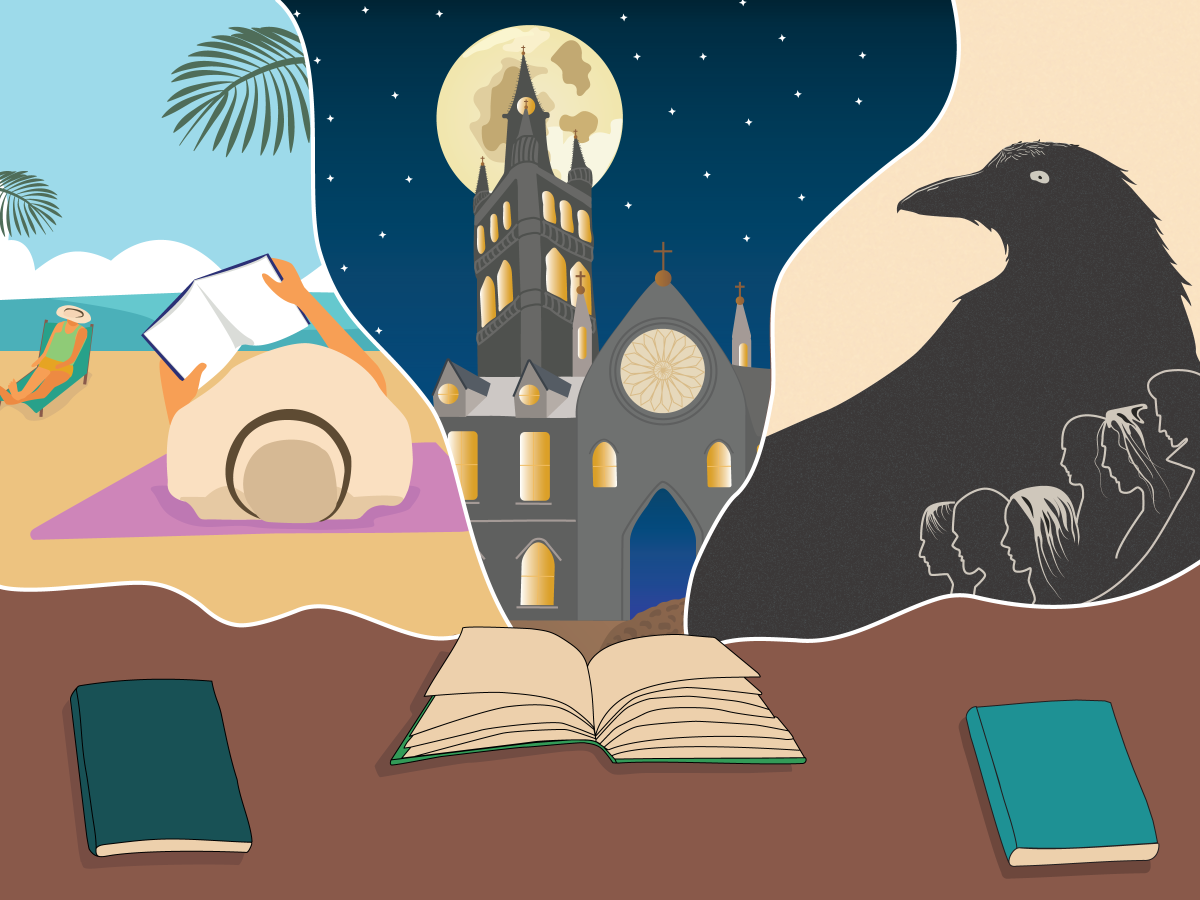Reading for enjoyment is not a frivolous pursuit but rather a means of enriching one’s life, broadening horizons and providing much-needed escapism.
For students who feel that reading is a dry exercise in information absorption, fiction can be a revelation. It offers a world of imagination and creativity, providing a break from the rigors of textbooks and exams. It invites readers to dream, to explore the uncharted and to unleash their own creativity. However, fiction reading is often brushed aside as something non-productive, particularly when compared to nonfiction such as self-help and textbooks. Many students often view reading as an academic chore or a means to acquire knowledge. While non-fiction certainly has its merits, fiction can spark a newfound passion for reading in those who might otherwise steer clear of it.
Before 2020, avid readers were rare, but when we were isolated during the pandemic, book sales boomed. Many individuals sought solace in the pages of fiction, turning reading into a common pastime—in 2020, consumer spending on recreational reading increased 22.9%. In 2023, however, there is now a decline in book sales, and its popularity lessens once more. In a world that often feels overwhelmed by relentless digital distractions and world affairs, opening the pages of a fantasy or romance novel may appear to be a waste of time. But the truth is that fiction offers a much-needed mental sanctuary. It encourages mindfulness, allowing readers to disconnect from the constant stream of notifications and news to enter worlds and meet characters they love.
Fiction offers a unique blend of entertainment, escape and enlightenment; it enables readers to empathize with characters, to walk in their shoes and see the world through diverse lenses. It prompts readers to analyze characters’ motivations, decipher complex plots and ponder the moral dilemmas presented within the story. Readers who engage with words often become more familiar with writing techniques and become better writers. These analytical skills are transferable to academic pursuits and can enhance students’ comprehension and critical reasoning abilities.
But perhaps the escape aspect holds the most allure. Just like self-care is essential to productivity, books that provide fictional escapism are as valuable as any nonfiction book. Maybe you are a lonely college student missing the comfort of old friendships, and want a fantastical escape. You can find solace in the found family trope in “Six of Crows” by Leigh Bardugo. Perhaps you’re grappling with an existential relationship crisis and want a comforting romance — read “Beach Read”by Emily Henry. If in need of romanticized academia to motivate your studies, pick up “The Secret History”by Donna Tartt. There are endless options for just about any mood. But bear in mind that each book has vastly different characters, pacing and literary complexity, even within the same genre. Not enjoying one book doesn’t mean you won’t enjoy another—in fact, finding what you don’tlike will steer you in the direction of what you will love.
The books you read don’t have to be renowned classics with literary awards. Sometimes re-reading the Percy Jackson or Harry Potter series can be just enough to kickstart your mental endurance, allowing you to segue into other novels and genres afterwards. Tastes can vary; some prefer high concept, complex science fiction and fantasy, others prefer simple, swoony romances and others prefer contemporary realism. Many readers prefer to read across numerous genres. As you read more, trying different fiction genres from literary to fantastical, you will be able to discover your taste to better help you when choosing your next read. You will gain the ability to identify not only the genres that you enjoy but the character types, tropes and settings that bring you the true weightlessness of being lost in a book.
Despite the recent ebb in book sales, book culture in 2023 is still a reader’s dream, for books are more accessible than ever. Until 2020, online social media communities like BookTok and Bookstagram were barely blips on the radar, but today they are cultural phenomena, allowing readers both new and seasoned to find a favorite read with a quick search. While the aisles of bookstores can be daunting to even an avid reader, there are even BookTok tables in Barnes and Noble stores with the recent most popular reads and the titles currently appealing to new readers. This metamorphosis in the way we engage with literature is not only an easy door for new readers to access books but a testament to the power of fiction. It showcases how stories, even imaginative, are necessities to our hearts and minds.
As bookstores like Barnes and Noble plan on opening new locations in the DFW area, including Richardson this fall, students have an opportunity to discover or rekindle their love for fiction. The presence of such stores not only provides access to endless novels but also fosters a sense of community among readers. Explore aisles of fantasy, contemporary and science fiction, among others, and perhaps even meet a new friend with recommendations in the process.
In the ever-changing landscape of our world, fiction is as necessary as any other book, nurturing creativity and strengthening critical thinking while offering an escape. Stop by a bookstore this week or when the new ones open and introduce yourself to the boundless universes of fiction. Whether you are new or long-since returning, within a book’s pages you will always be welcome.






